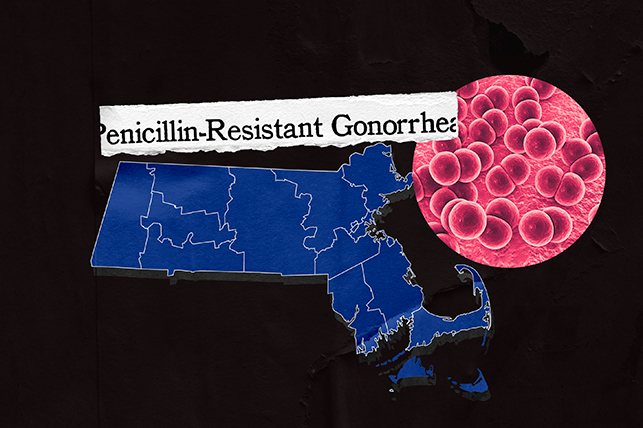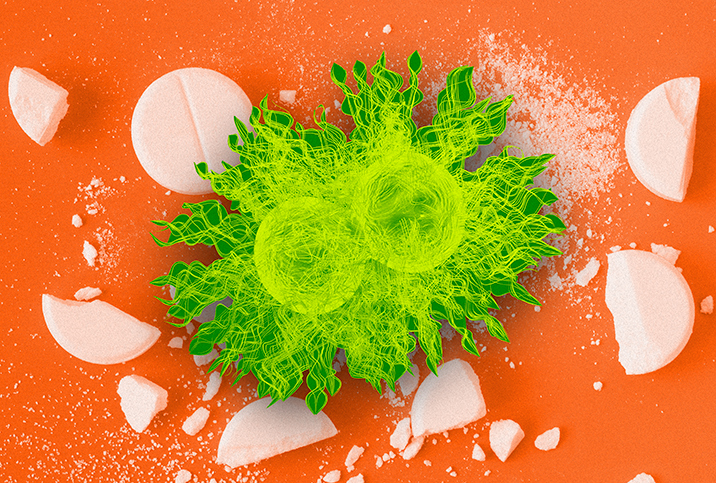Massachusetts Reports New Strain of Gonorrhea

A new strain of gonorrhea has surfaced in America.
The Massachusetts Department of Public Health detected a novel strain of gonorrhea in a resident that showed "reduced response to multiple antibiotics," according to a Jan. 19 news release.
"This is the first time that resistance or reduced response to five classes of antibiotics has been identified in gonorrhea in the United States," the release stated.
Two cases were discovered by the state's public health laboratory as part of disease surveillance activities. State officials said there is no direct connection between the two individuals identified with the new strain.
Previously detected in Asia-Pacific countries and the United Kingdom, the strain was identified for the first time on U.S. soil, according to the release.
Ultimately, the two Massachusetts cases were cured with ceftriaxone, the standard recommended antibiotic treatment for gonorrhea.
The sexually transmitted disease (STD) can be difficult to pin down because it often causes no symptoms. It can lead to long-lasting health problems, though, even if the infected patient is asymptomatic. Gonorrhea most commonly affects the urethra, rectum and throat.
In women, some symptoms of gonorrhea may include painful urination, increased vaginal discharge and bleeding between periods. Gonorrhea symptoms in men may include painful urination, swollen and painful testicles, and yellow, white or green discharge.
If left untreated, gonorrhea can cause infertility in both infected men and women.
"Overall, these cases are an important reminder that strains of gonorrhea in the U.S. are becoming less responsive to a limited arsenal of antibiotics," the release said.
The state health department, with assistance from the Centers for Disease Control and Prevention (CDC) and local hospitals, is conducting contact tracing to find out if anyone else has been infected with this particular STD strain.
In an alert sent to clinicians and laboratories across the state, the health department recommended increased use of laboratory culture testing to detect antibiotic resistance in individuals with gonorrhea symptoms.
"The discovery of this strain of gonorrhea is a serious public health concern, which DPH, the CDC and other health departments have been vigilant about detecting in the U.S.," Massachusetts Public Health Commissioner Margret Cooke said in the release. "We urge all sexually active people to be regularly tested for sexually transmitted infections and to consider reducing the number of their sexual partners and increasing their use of condoms when having sex. Clinicians are advised to review the clinical alert and assist with our expanded surveillance efforts."
In 2020, the CDC classified gonorrhea as the second-most common STD in America. Rates of the disease have increased 131 percent nationwide since 2009, when the country experienced an all-time low, according to preliminary CDC data.
In Massachusetts, laboratory-confirmed cases of gonorrhea have increased by 312 percent since a low point of 1,976 cases in 2009.
The Massachusetts Department of Public Health did not respond to a request for comment.


















